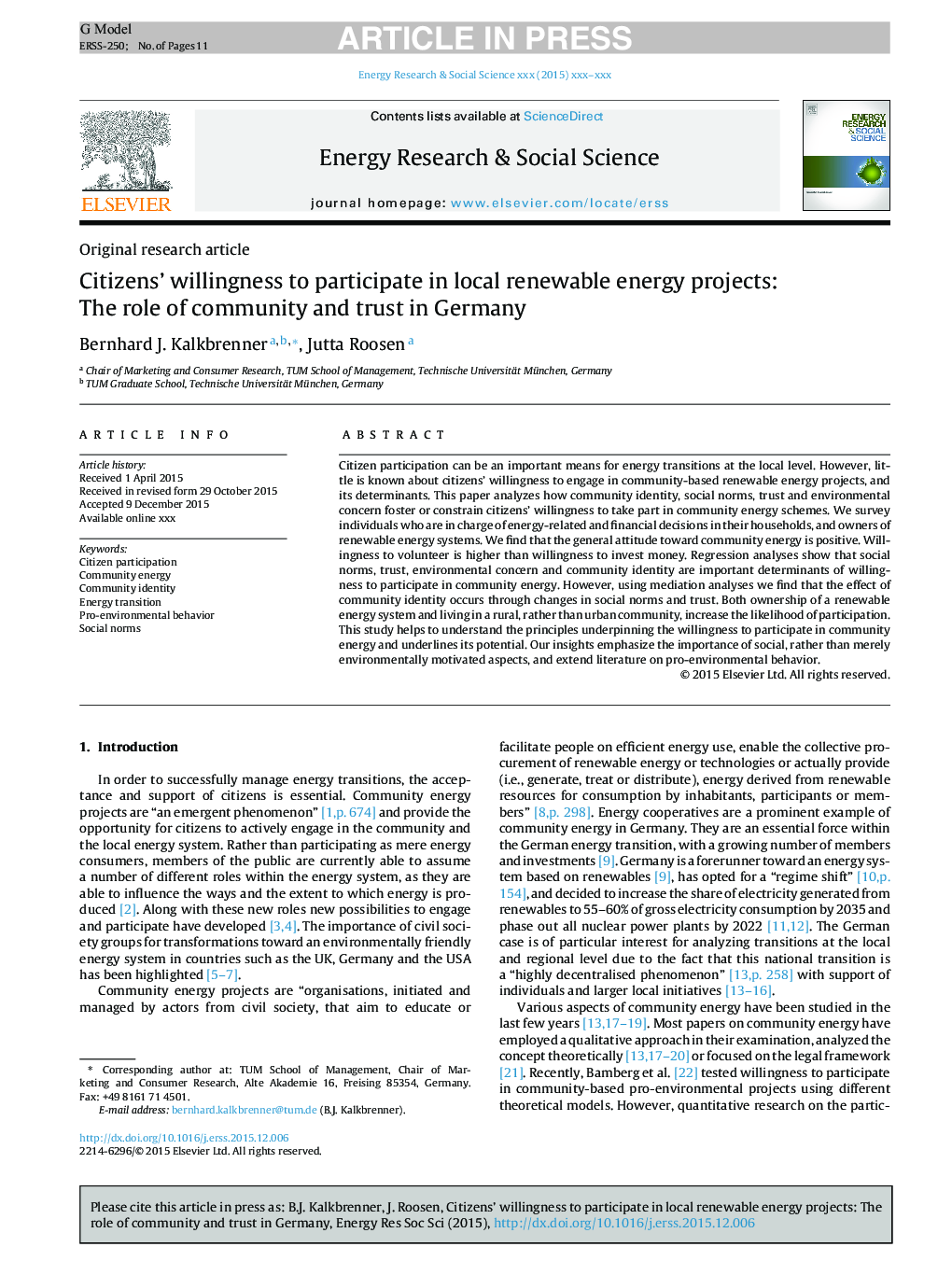| Article ID | Journal | Published Year | Pages | File Type |
|---|---|---|---|---|
| 6558255 | Energy Research & Social Science | 2016 | 11 Pages |
Abstract
Citizen participation can be an important means for energy transitions at the local level. However, little is known about citizens' willingness to engage in community-based renewable energy projects, and its determinants. This paper analyzes how community identity, social norms, trust and environmental concern foster or constrain citizens' willingness to take part in community energy schemes. We survey individuals who are in charge of energy-related and financial decisions in their households, and owners of renewable energy systems. We find that the general attitude toward community energy is positive. Willingness to volunteer is higher than willingness to invest money. Regression analyses show that social norms, trust, environmental concern and community identity are important determinants of willingness to participate in community energy. However, using mediation analyses we find that the effect of community identity occurs through changes in social norms and trust. Both ownership of a renewable energy system and living in a rural, rather than urban community, increase the likelihood of participation. This study helps to understand the principles underpinning the willingness to participate in community energy and underlines its potential. Our insights emphasize the importance of social, rather than merely environmentally motivated aspects, and extend literature on pro-environmental behavior.
Keywords
Related Topics
Physical Sciences and Engineering
Energy
Energy (General)
Authors
Bernhard J. Kalkbrenner, Jutta Roosen,
